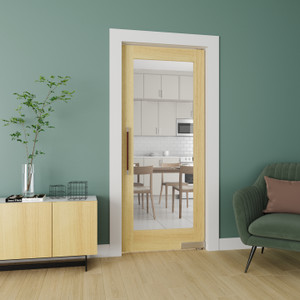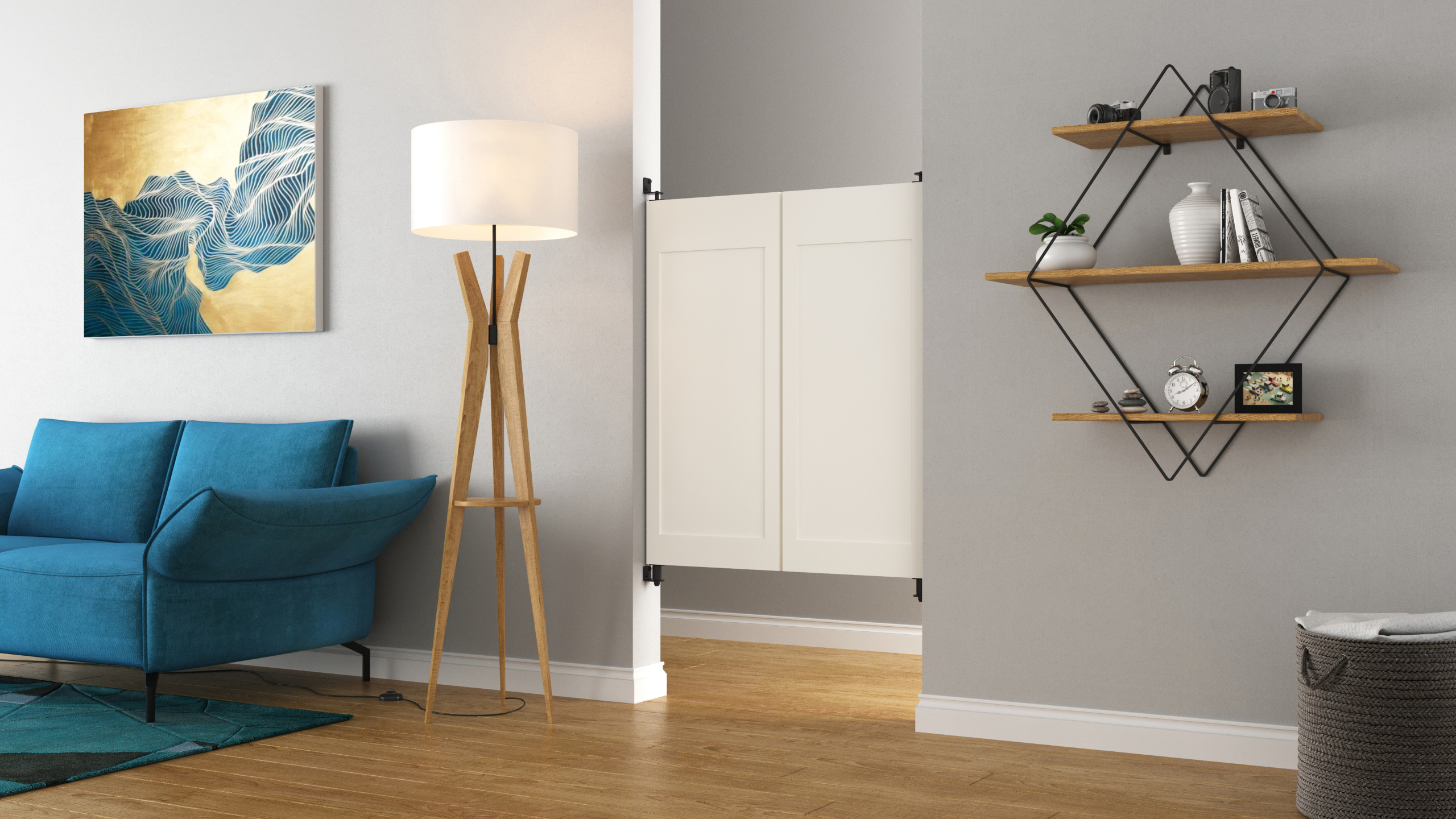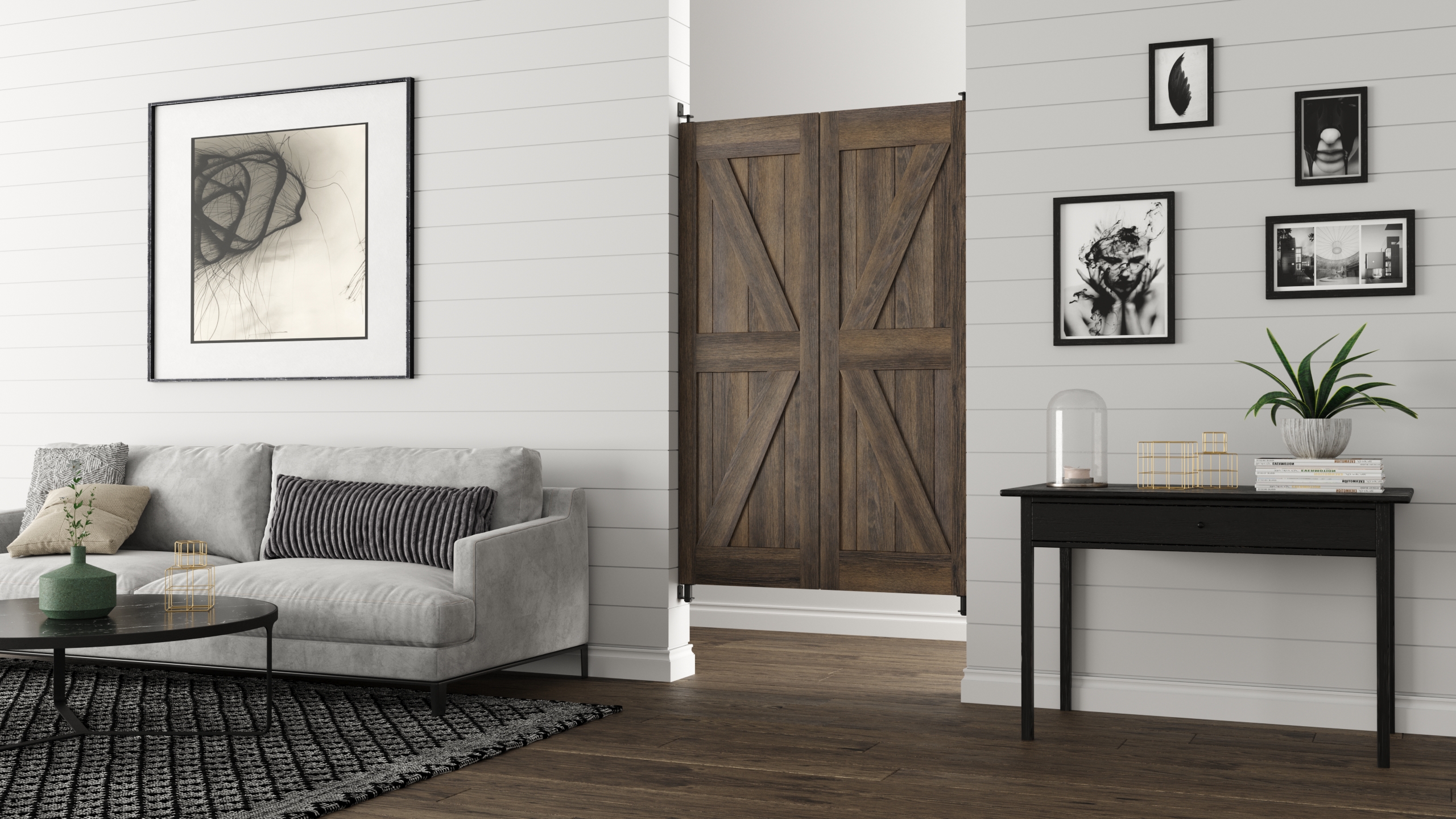
Easy Guide to Care for Your Swinging Cafe Doors Today
Door Maintenance Made Easy: Interior Door Care Schedule
Homeowners often pride themselves on maintaining various aspects of their home, ensuring that the space remains not just functional, but also aesthetically pleasing. While the concept of home maintenance may evoke thoughts of mowing lawns or cleaning gutters, it's vital not to overlook the subtler elements of your sanctuary – like your interior doors. A well-thought-out door care strategy is more than just a cosmetic touch; it's a structured plan that can extend the lifespan of your doors and keep them operating smoothly for years. In this comprehensive guide, we'll walk you through the intricate details of crafting and executing a foolproof maintenance schedule specifically tailored to the interior doors in your home.
Key Takeaways:
- Create a simple care calendar—monthly dust & spot-check, quarterly deep clean & lubricate, and an annual hardware/alignment review—to keep swinging café doors operating smoothly and avoid costly repairs.
- Clean smart: use a mild detergent (or manufacturer-approved cleaner) with a soft cloth, avoid abrasives/excess water, and use the right lubes—silicone spray for hinges/rollers and dry graphite for locks—applied sparingly.
- Inspect & fix early: tighten loose screws, address squeaks and sticking (hinge adjustment/light sanding), check seals/weatherstripping, and call a pro for major issues or a yearly tune-up; set reminders and involve the household.
Understanding the Importance of Door Maintenance
 Before we roll up our sleeves and head into the nitty-gritty, it's crucial to understand why door maintenance deserves a spot on your household to-do list. Interior doors, often a forgotten part of home maintenance, contribute significantly to the aesthetic appeal and functionality of your space. Routine care can prevent major issues from developing, save you money on potential repairs, and ensure your doors continue to open, close, and lock as they should.
Before we roll up our sleeves and head into the nitty-gritty, it's crucial to understand why door maintenance deserves a spot on your household to-do list. Interior doors, often a forgotten part of home maintenance, contribute significantly to the aesthetic appeal and functionality of your space. Routine care can prevent major issues from developing, save you money on potential repairs, and ensure your doors continue to open, close, and lock as they should.
The Cost of Neglect
Neglecting your interior doors can be costly in the long run. Over time, debris buildup and lack of lubrication can lead to hinges rusting, handles jamming, and the overall mechanism deteriorating, necessitating a full replacement. These costs and the inconvenience of a malfunctioning door can be easily avoided with a structured maintenance plan.
Detecting Early Warnings
One of the beneficial aspects of regular maintenance is the early detection of problems. Small niggles that may seem inconsequential, such as a slight difficulty closing the door, are indicators of a larger underlying issue. By identifying and addressing these early warnings, you prevent them from escalating into significant, and more expensive, challenges.
Components of an Interior Door Care Schedule
A harmonized door care schedule encompasses several key components. We'll dissect each of them to provide you with a deeper understanding of how to keep your doors in top-notch condition.
Cleaning
Neglecting to clean your doors is akin to ignoring regular bathing – it's a surefire way to accumulate grime and sweat that can linger and deteriorate the door surface over time. Regular cleaning involves removing everyday dust and smudges that accumulate, and also focuses on stains or marks that may require more meticulous attention.
To clean doors, avoid abrasive cleaners that can damage the finish. Instead, opt for a mild detergent and water solution or specific cleaners recommended for your door's material. Always follow the manufacturer's cleaning instructions to maintain the integrity of the door.
Lubrication
Do you hear that unpleasant squeak when you open your bedroom door? That could mean it's time for a little lubrication. The hinges, knobs, and locks on your doors should move smoothly. Regularly lubricating them is a simple maintenance practice that can make a significant difference in how your doors operate and how long they last.
Use a suitable lubricant for your door's hardware, such as silicone spray for hinges, to reduce friction and noise. Avoid over-lubricating, as this can lead to a messy buildup of debris and excess lubricant.
Inspection
A comprehensive visual inspection of your doors is an effective way to spot any areas for concern. You'll want to check for dents, scratches, or other signs of damage that might need addressing. Also, be on the lookout for doors that do not hang straight, are not installed properly, or have misaligned locks or latches.
Repairs
When you stumble upon an issue during your inspection, it's time to fix it. Whether it's tightening a loose screw, repairing a small scratch, or adjusting the alignment of the door, prompt repairs can prevent issues from worsening. It's also an opportunity to evaluate if any hardware or components need replacing, ensuring your doors remain in top condition.
Creating a Door Care Calendar
Your door maintenance plan should be organized and structured. A calendar is a practical way to schedule routine maintenance, ensuring that your doors receive the attention they need when they need it.
Monthly Tasks
Monthly tasks focus on the day-to-day maintenance of your doors. Dusting and quick inspections to look for any sudden changes are perfect for a monthly routine. If you spot any loose hardware, make sure to address it immediately.
Quarterly Tasks
Every quarter, set aside time for deep cleaning and more thorough inspections. This is also a good time to apply a fresh coat of protective finishes, as needed, to keep your door's surface protected.
Annual Tasks
Annually, engage in the most intensive maintenance. This could involve disassembling and deep cleaning hardware, sanding out significant wear and tear, and conducting extensive inspections to ensure the structural integrity of your doors.
Cleaning and Care Guidelines
Each type of interior door material requires specific care to maintain its appearance and functionality.
Cleaning Products
For wooden doors, use a mild detergent solution and avoid excessive moisture. Glass doors can be cleaned with a simple glass cleaner, while composite or laminate doors may need specialized cleaners. Always test any new cleaner on a small, inconspicuous area first.
Cleaning Techniques
When cleaning doors, use a soft cloth or sponge to avoid scratching the surface. Never use abrasive tools, as they can mar the finish. Clean in the direction of the wood grain or follow any other patterns on your door for optimal results.
Frequency
The frequency of cleaning will depend on the usage and environment. If you have high-traffic areas, you may need to clean more often. A general recommendation is to incorporate a monthly cleaning to keep surfaces looking their best.
Lubrication Tips for Door Hardware
Proper lubrication is key to keeping your door hardware functioning smoothly and quietly.
Types of Lubricants
Choose the correct lubricant based on the material of your door hardware. Silicone spray is generally a good all-around choice for hinges, whereas dry graphite powder works well for locks and latches. For a more traditional approach, a light machine oil can be used on hinges as well.
Application Techniques
When applying lubricant, a little goes a long way. Too much can attract dust and create a greasy mess. Apply the lubricant to the moving parts of the hardware and operate the door several times to distribute it evenly.
Frequency
Lubricate your door hardware at the first sign of resistance or noise. For proactive maintenance, consider a biannual schedule to lubricate all interior door hardware.
Inspection Checklist for Door Maintenance
 The key to an effective inspection is to be thorough and detailed.
The key to an effective inspection is to be thorough and detailed.
Door Surfaces
Inspect all door surfaces for any changes in texture, such as abrasions or rough patches. These could indicate damage to the surface finish. Look for any inconsistent coloring or texture, which may suggest the presence of water damage or an oil-based contaminant.
Hardware
Check all screw heads, and ensure they are secure and flush with the hardware. Look for signs of rust, which must be dealt with immediately to prevent further damage. All hinges should be tight and aligned. If you notice significant wear or any misalignment, consider professional assistance.
Seals and Weatherstripping
The seals and weatherstripping around your doors help maintain the home's temperature and guard against outside elements. Inspect them for gaps, cracks, or peeling. If any signs of disrepair are present, they should be replaced or repaired promptly.
DIY Repair Tips for Minor Issues
Some door issues can be easily taken care of without professional assistance.
Sticking Doors
Often, sticking doors are a result of the door coming into contact with the frame in a way that it shouldn't. A simple fix might be to tighten or reposition the hinges. If necessary, sand just a bit off the high spot on the door for smooth operation.
Loose Hardware
A screwdriver is your best friend for this task. Give all the hardware on your door a once-over. If you discover a loose screw, tighten it. Be careful not to over-tighten and strip the threads.
Squeaky Hinges
Apply lubricant to the hinge and work the door back and forth to allow the lubricant to penetrate the joint. Wipe away any excess to prevent a buildup of dust and debris, which could make the problem worse.
Professional Maintenance Services
While many aspects of door maintenance are DIY-friendly, sometimes it's best to leave it to the professionals.
The Expert Touch
Professional door maintenance services can be invaluable for older doors or those with severe damage. They have the experience and equipment to handle a wide range of issues effectively.
The Annual Checkup
Consider an annual service for your interior doors. Professionals can inspect your doors thoroughly, repair any damage, and provide guidance on long-term care or potential upgrades.
Integrating Door Maintenance into Household Routine
The key to a successful door maintenance plan is making it a seamless part of your household routine.
Setting Reminders
In our busy lives, it can be easy to forget the little things like door maintenance. Set up reminders on your phone or use a traditional calendar hung in a high-traffic area of your home.
Involvement from the Family
Make door maintenance a family affair. Get your children involved, teaching them important skills that will serve them well as they take on more responsibility in their households.
Frequently Asked Questions (FAQs)
Here are some of the most common questions homeowners have about maintaining their interior doors:
How Often Should I Clean My Doors?
As a general rule, a monthly cleaning should be enough for most interior doors. However, consider your home's specific needs. High-traffic doors may need more frequent cleaning, while those in lesser-used rooms might be fine with less attention.
What's the Best Way to Clean Painted Doors?
Use a gentle cleaner and a soft cloth. Avoid using too much water, which can saturate the wood under the paint and cause it to swell or warp.
How Can I Fix a Door That Doesn't Latch Properly?
Adjust the strike plate by slightly moving it inward. This may require some trial and error, so be patient. If you can't get it just right, consider calling in a professional for assistance.
Conclusion
Door maintenance is an essential part of home care that's often overlooked. By setting up a comprehensive door care schedule and committing to it, you can prolong the life of your interior doors, save money, and ensure that your home's aesthetics and functionality are preserved. Remember, a little care goes a long way – and with doors, every little bit counts toward a welcoming, well-maintained home.

